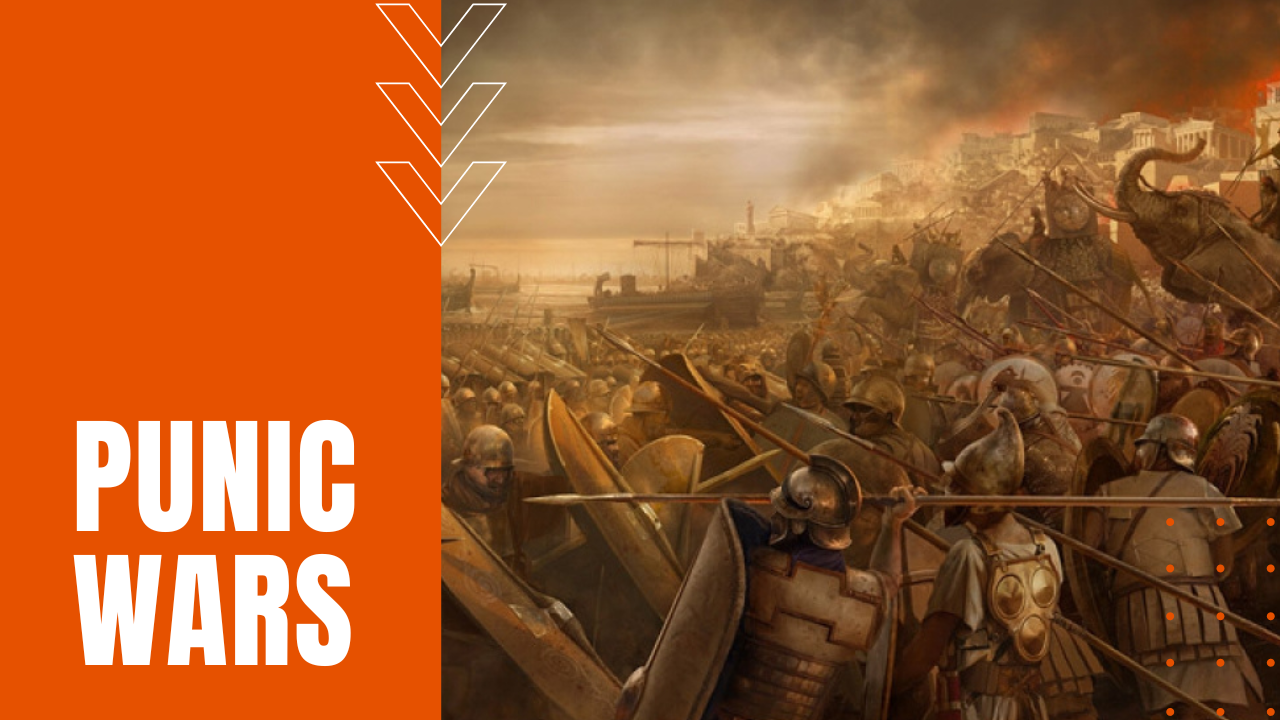Punic Wars: Rome’s Carnage on Carthage and More

After Rome decided to involve itself in a dispute on the Carthaginian province of Sicily, Rome’s intervention sparked the Punic Wars, which lasted intermittently from 264 to 146 B.C.E.
First Punic War
Known for its commanding navy, during the First Punic War of 264 to 241 B.C.E, the North African city-state of Carthage faced off with Rome’s rebuilt and strengthened navy in the 260 B.C.E. sea battle of Mylae, leading to Roman victories at Mylae and later the 256 B.C.E. Battle of Ecnomus.
Rome’s subsequent invasion of North Africa at first ended in defeat, yet Rome’s refusal to back down led to a 241 B.C.E. maritime victory against the Carthaginians that made Sicily Rome’s first overseas province.
Hannibal’s Carthaginian Forces vs Rome
After establishing a new base of influence in Spain, when Hannibal took command of Carthaginian forces in the Iberian Peninsula, in 219 B.C.E., he and his army crossed the Ebro River into the Iberian city of Saguntum. After Hannibal’s declaration of war, he led some 90,000 infantrymen and 12,000 cavalrymen over the Alps from Spain into Italy, scoring a succession of victories over Roman troops at Ticinus, Trebia and Trasimene, culminating in the 216 B.C.E. Battle of Cannae, where he surrounded a Roman army twice his size before inflicting massive casualties.
Unwilling to accept defeat, Rome rebounded to push the Carthaginians out of Italy under the command of Scipio Africanus, who in 203 B.C.E. routed the Carthaginian army at Zama, ending the Carthaginian empire in the western Mediterranean, while forcing Carthage to surrender its once-dominant fleet, at the same time paying a large indemnity to Rome.
Carthage’s Remaining Threat and Third Punic War
After hawkish members of the Roman Senate convinced colleagues that Carthage—despite being severely weakened—remained a threat to Rome’s dominance in the region, the Third Punic War of 149 to 146 B.C.E. witnessed the two-year Roman siege of Carthage, until a change in Roman leadership saw Scipio the Younger breach the city in 146 B.C.E., pushing Carthaginian troops back toward their citadel, while destroying most of the 700-year-old city in a seven-day rampage of harrowing bloodshed and rampant destruction.
Rome’s victory over Carthage further expanded her territory from the Atlantic coast of Spain to the border between Greece and Asia Minor, making the Punic Wars, an important empire-building century for a land hungry and seemingly uncontainable Roman Empire.
